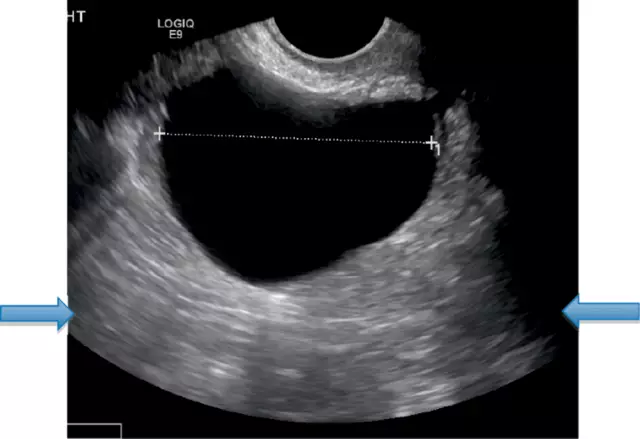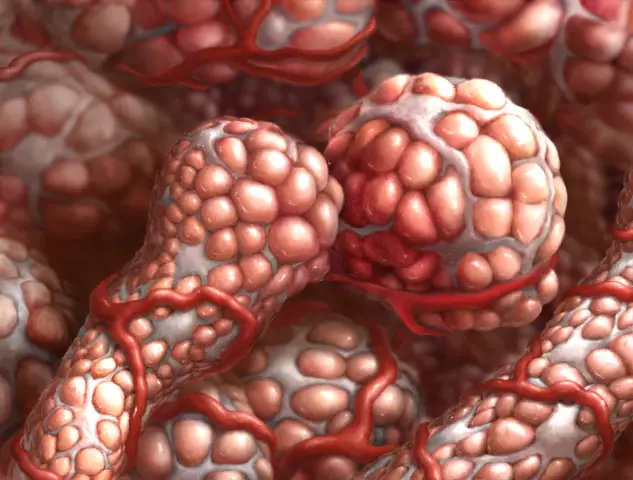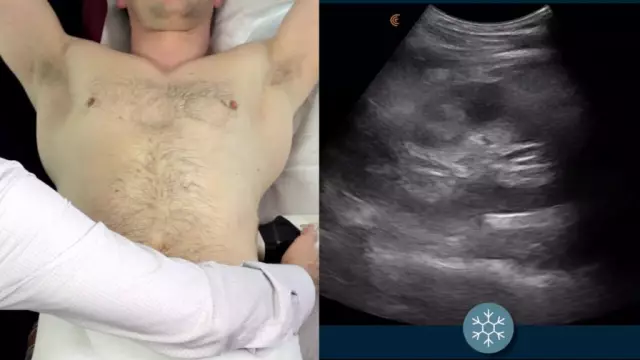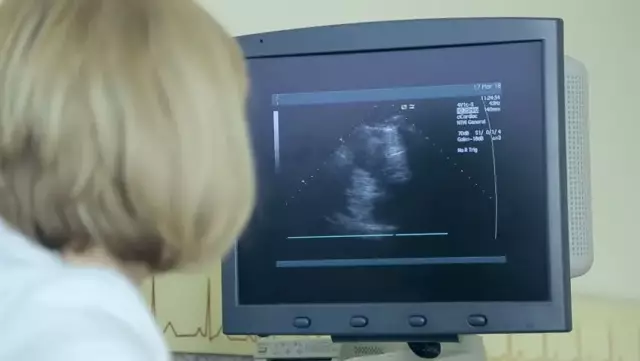- Author Rachel Wainwright wainwright@abchealthonline.com.
- Public 2023-12-15 07:39.
- Last modified 2025-11-02 20:14.
Ultrasound Angiology

Angiology is a branch of medicine that specializes in the diagnosis and treatment of vascular diseases. In particular, veins, lymphatic vessels, arteries.
As you know, the human vascular system includes the heart, blood, lymphatic vessels, bone marrow, spleen and lymph nodes. According to its morphological and functional features, a single vascular system is divided into circulatory and lymphatic systems.
In the modern world, a person tries to do everything, while forgetting about the main thing - about his health. In order to feel good, the muscles of the body must be in good shape. Likewise, the vascular system requires stress to be in good shape. The absence of such loads leads to angiological diseases of the cardiovascular system.
In medicine, many diseases of the vascular system are known: anemia, aneurysms, atherosclerosis, acute thrombosis, embolism of arteries or veins, varicose veins, venous thrombosis, various vascular injuries. All of them are related to angiology.
Diagnosis of diseases in angiology
As with the diagnosis of any disease, the diagnosis of diseases of the vascular system is based on clinical manifestations. Diagnose them by hardware research. Such studies allow the most complete and reliable assessment of the stage of the disease, to identify the localization of the process.
If the angiological results of studies have shown that surgical intervention is necessary, then the patient undergoes an operation with the help of which blood clots are removed in the vessels, which, in the future, saves the person from a stroke or heart attack.
In modern medicine, the surgeon can establish an accurate diagnosis even during the initial examination. To do this, he examines the patient using an ultrasound angiological examination apparatus. In addition, modern devices that are used for operations allow surgical interventions without violating the integrity of the vessels. This technique allows you to minimize the chance of complications after such operations.
Angiology in Pediatric Surgery
The following types of angiological diseases can occur in newborns:
- hemangioma
- cyst
- vascular tumors.
In cases of detection of cysts that make breathing difficult, squeeze the esophagus, or create another situation that is dangerous for the baby's life, the surgeon performs operations to remove them. Almost all operations take place without any special complications, and in the future, the baby grows healthy.
Ultrasound Angiology

In modern angiology, ultrasound scanning is widely used. Scanning helps to accurately identify foci of vascular lesions, the nature of pathological vascular conditions, to determine the state of the arterial and venous systems of the human body.
Ultrasound angiology allows you to objectively assess the condition of the arteries of the abdominal cavity and the whole body as a whole. It makes it possible to assess the thickness of the vascular walls locally, the degree of impairment of the patency of the studied vessels, to identify formations on the walls of the vessels. Such a study is painless and very effective in terms of identifying the lesion and further treatment.
Various vascular lesions can lead to the development of hemodynamic disorders. That is why ultrasound angiological criteria for the diagnosis of hemodynamic syndromes are described. Such syndromes include systemic and local blood flow disturbances in the venous system, arterial deformities, and arterial aneurysms. With the help of ultrasound angiology, violations are detected, and timely treatment contributes to a speedy recovery.
Found a mistake in the text? Select it and press Ctrl + Enter.






